
Whether you’re showing a returning shopper their loyalty points, swapping headlines based on UTM source, or embedding product recommendations directly into a PDP, Digioh’s personalization tools make your site more relevant with every visit.
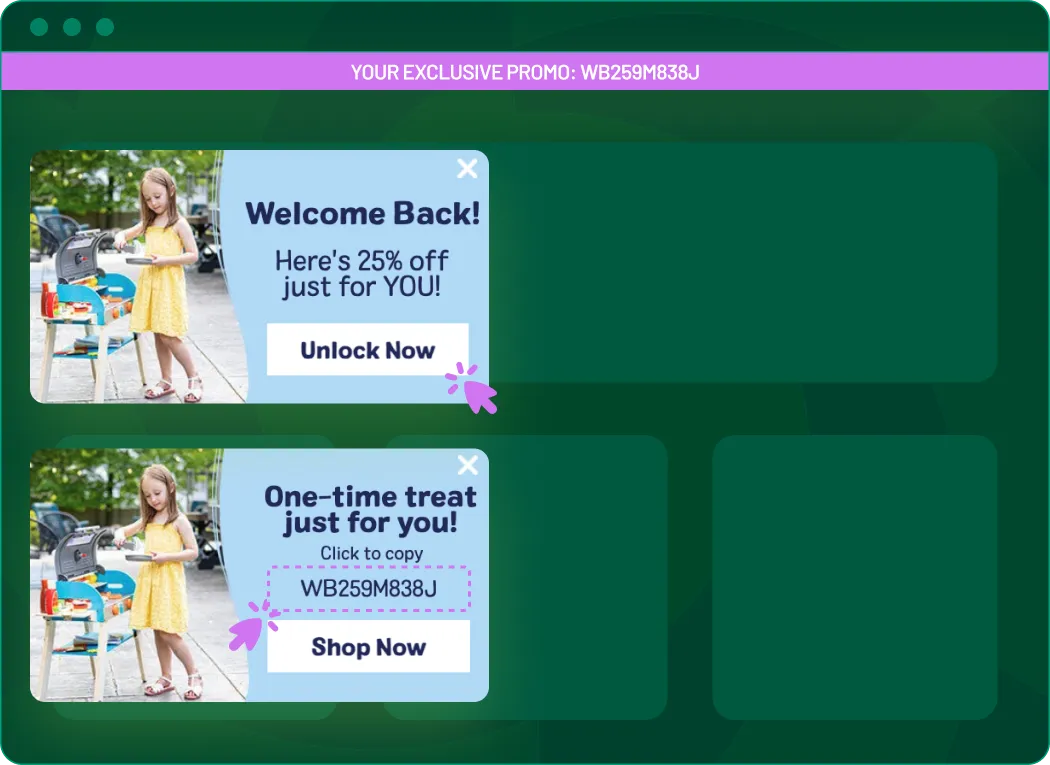
.webp)
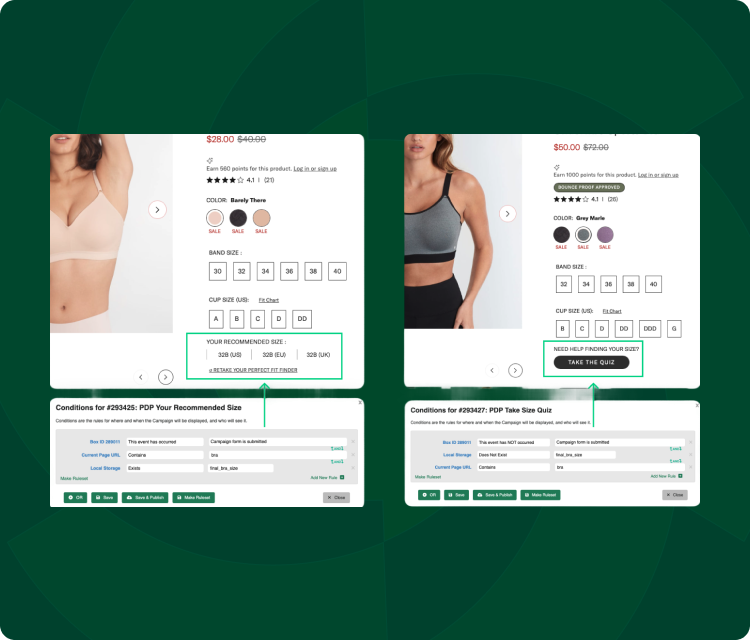
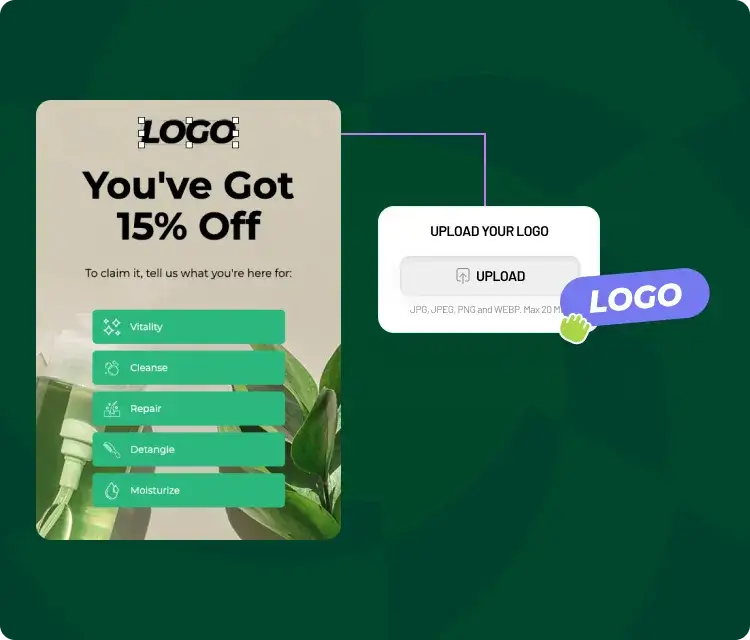
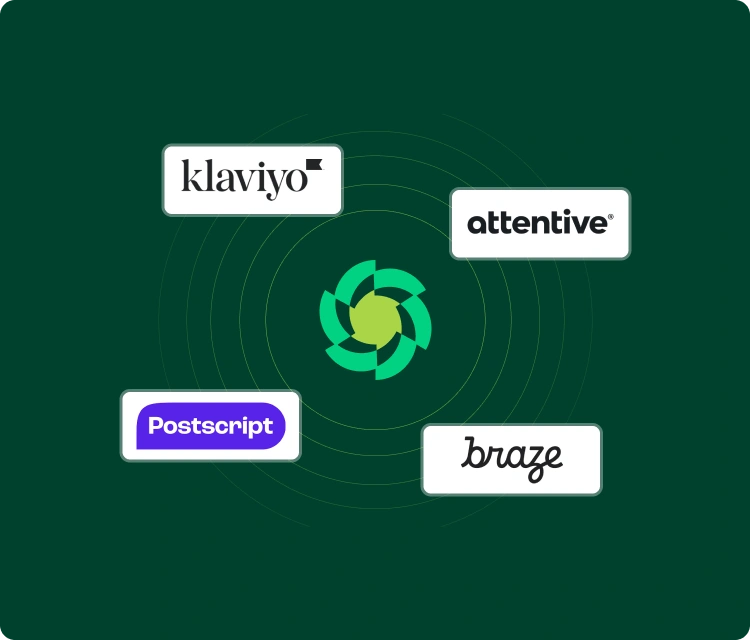
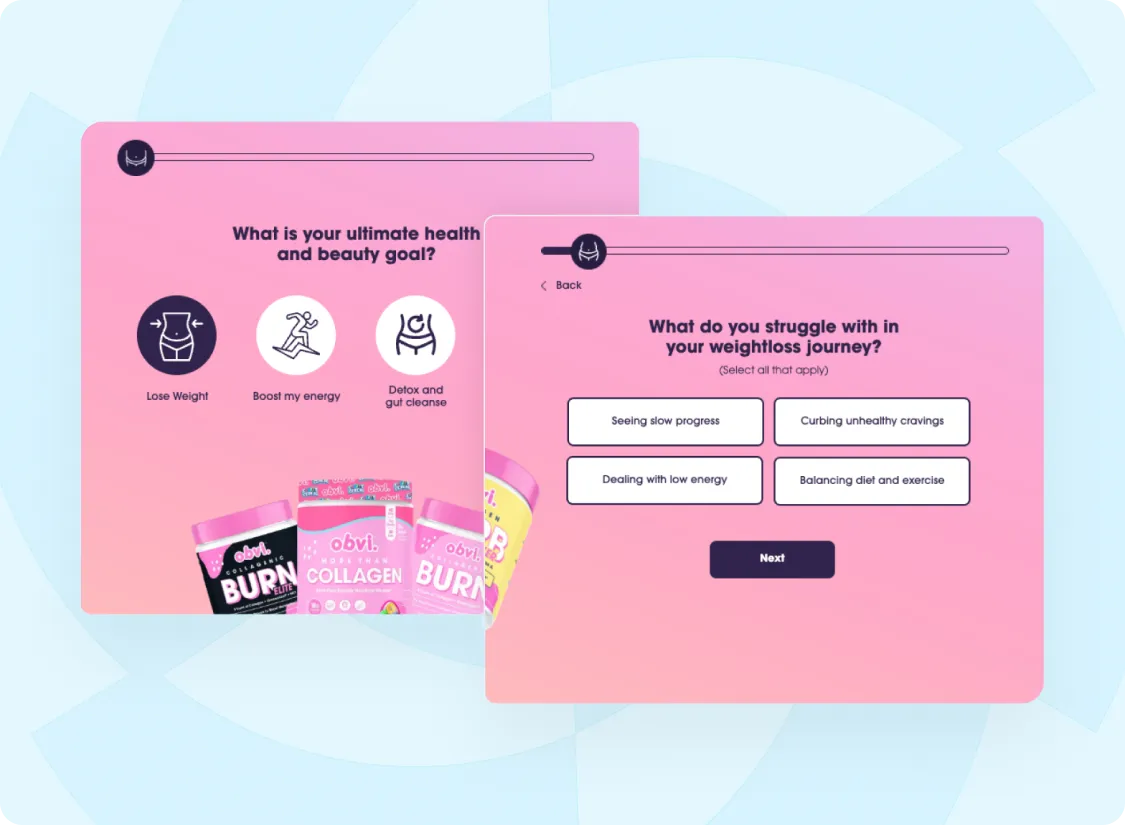
Capture zero- and first-party data with pop-ups, quizzes, forms, and more. Whether it’s preferences, size, gifting intent, or location, Digioh helps you gather it all.
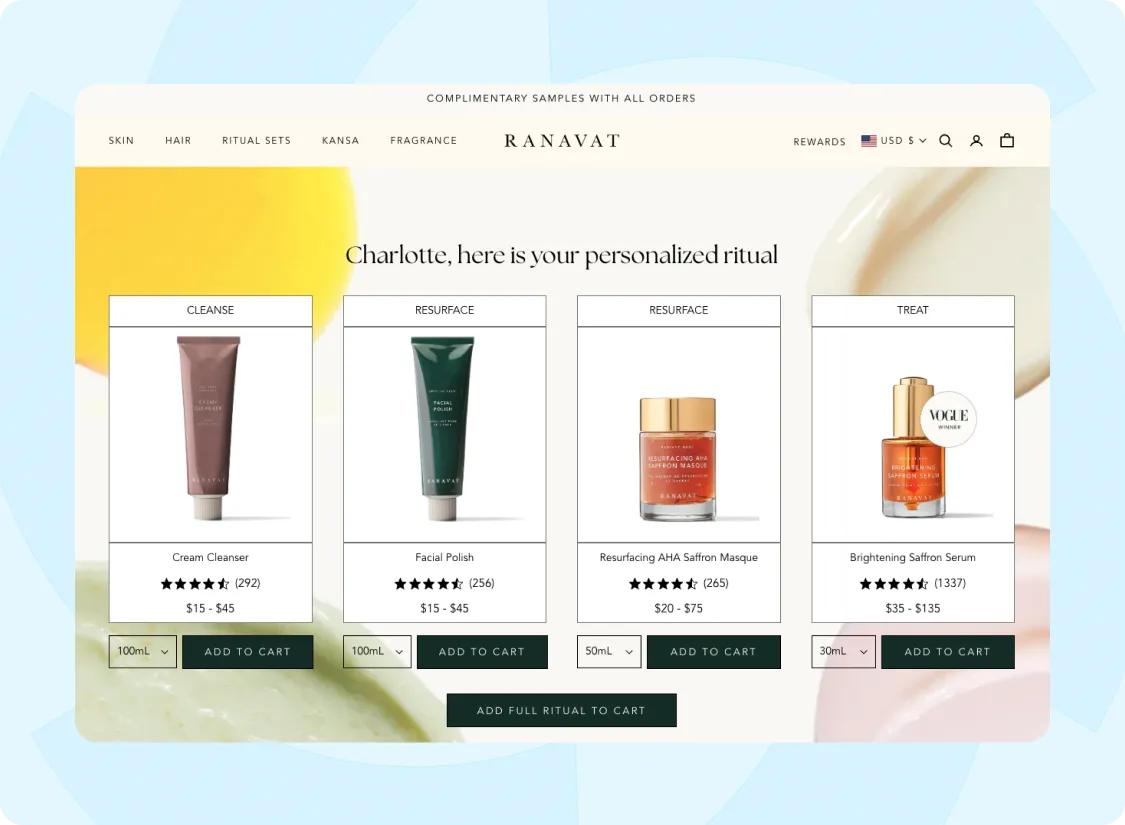
Identify shoppers by syncing ESP/CDP data or using Digioh’s identification suite. Even if cookies expire, you’ll know who they are across visits and devices.
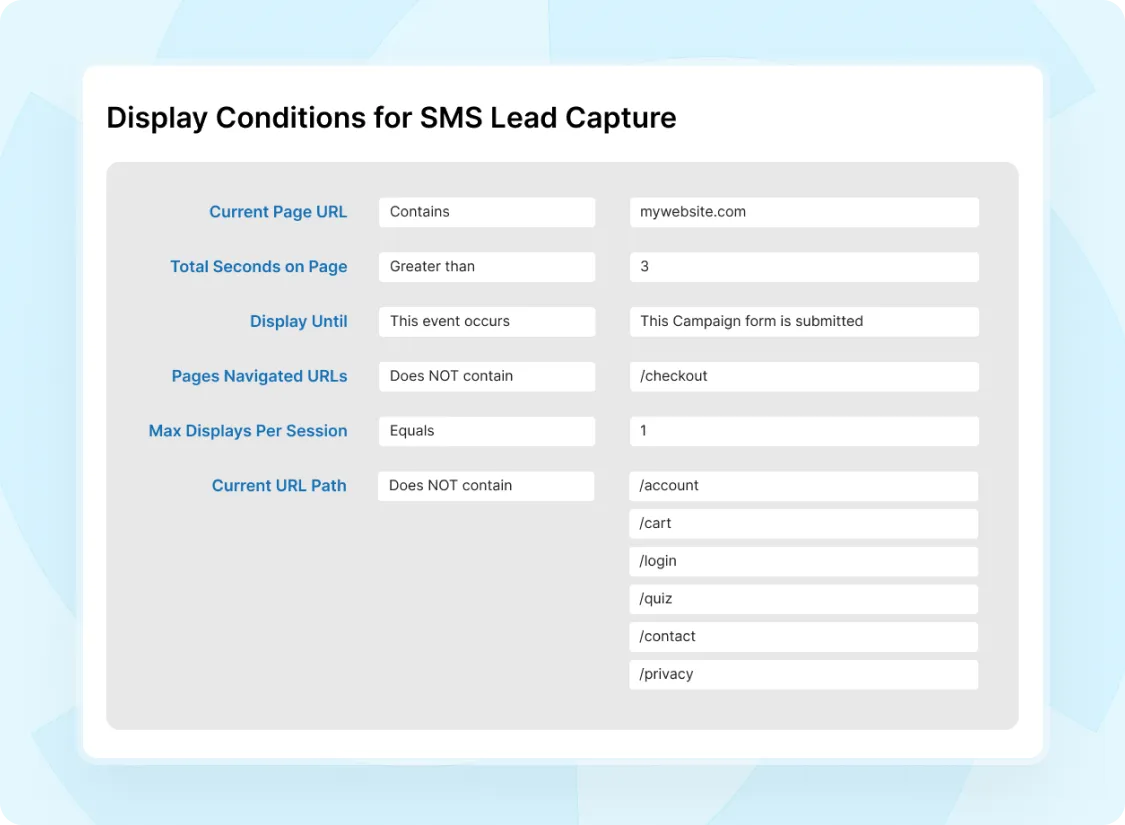
Use 50+ targeting conditions—UTMs, segments, cart activity, location, and more—to decide who sees what, and when.
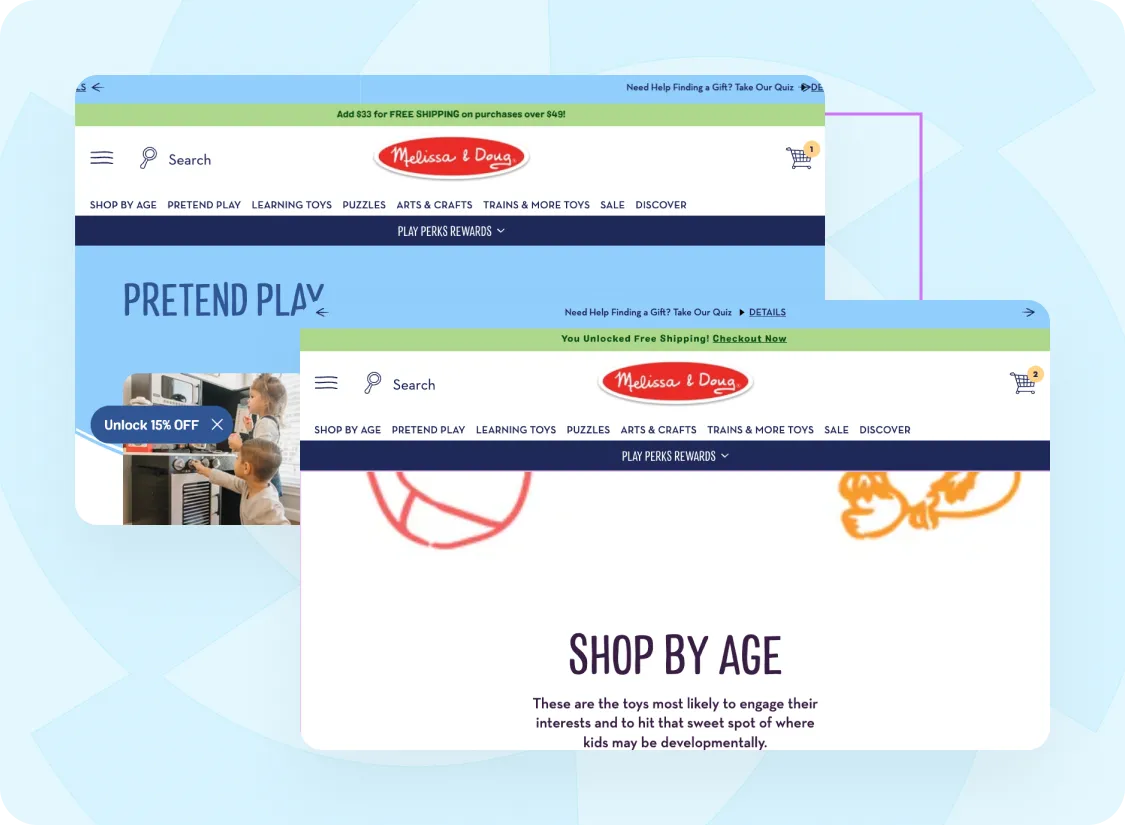
Show personalized banners, pop-ups, embeds, sidebars, and more in real-time. Think: “Welcome back, Emma!” or “You’re only $24 away from free shipping!”
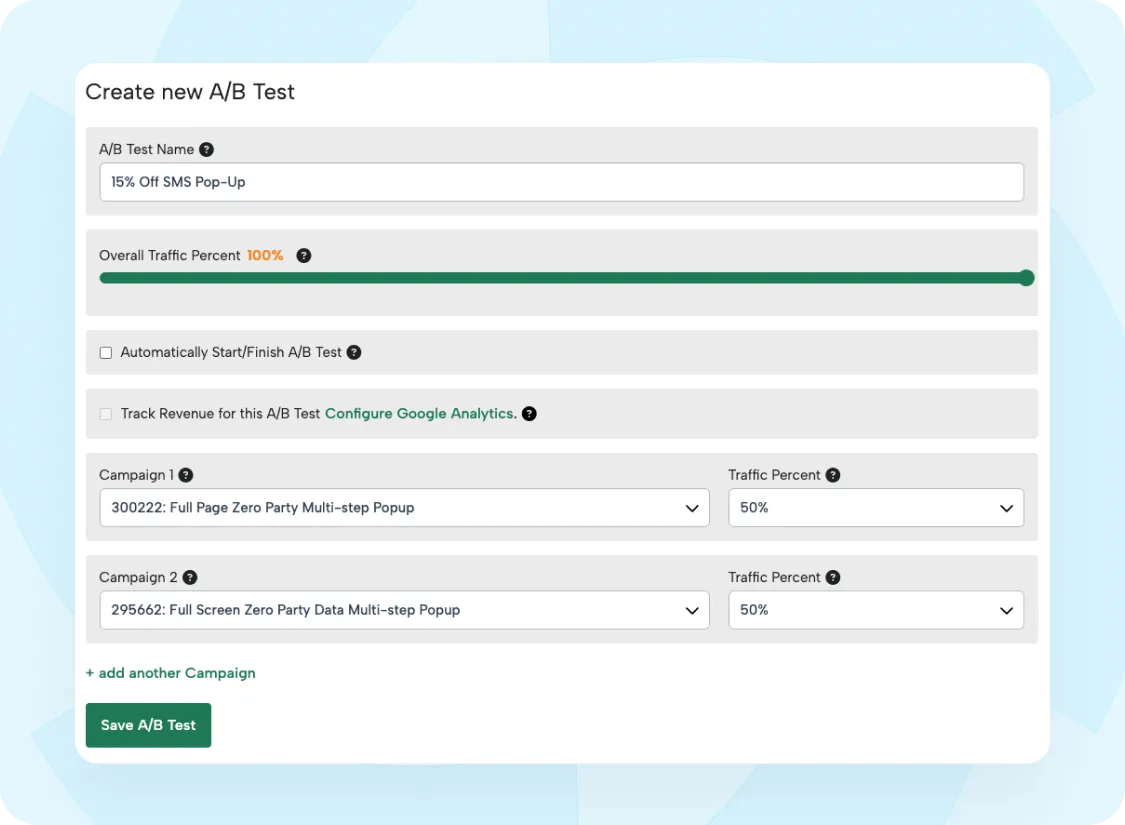
Run A/B tests, track performance, and refine what’s working with Digioh’s reporting dashboard.

Flexible, On-Brand Displays

Quizzes That Power Personalized Content

Advanced Targeting

Real-Time Personalization

Persistent ID + Identity Matching

Built-In Testing and Analytics

Digioh has allowed us to capture valuable customer data and consideration information, so we can be more targeted and relevant in our marketing messaging. Our CRM list has grown, and we’ve seen high returns in the emails to Digioh-engaged clients.

Charlotte Paffe
VP of Ecommerce and Digital Product at Andie Swim
Maximize your stack’s potential with 300+ integrations — including ESPs, CDPs, ecommerce platforms, and more. Real-time data sync and personalized experiences are just the beginning.


We’ll guide you through every step of the way of building personalized onsite experiences that convert.
Give us a mock-up, choose from one of our customer examples, or one of 100s of high-converting templates. We'll bring it to life.
Pass data to your ESP, SMS, CDP, analytics, and more.
Help docs, API docs, videos, and one-on-one sessions.
Digioh helps 3,000+ brands turn browsers into buyers with real-time, data-driven personalization. Let's make your site feel like it was built for each individual visitor.

Onsite personalization means changing what a visitor sees on your site so it feels tailor-made for them. Digioh does this by using data you already have (like past quiz answers) to swap in the right image, headline, or offer for each person, in real time.

When people see messages that speak directly to their interests—whether it’s product recommendations from a quiz or a special offer based on their browsing history—they’re much more likely to take action. Digioh customers routinely see double- or triple-digit lifts in click-throughs and sales simply by matching the right content to each visitor.

You can use anything from direct feedback (quiz answers or survey responses) to what pages someone’s looked at or items in their cart. You can even tap into email list memberships or loyalty tier data from your marketing tools. All of this information plugs into Digioh so your site evolves around each person’s tastes and behavior.

Not at all. Digioh’s visual editor and ready-made themes mean you don’t need to write code. You can pick a template, point and click to add your conditions or merge tags, and have a live campaign in under an hour. If you do want custom logic, you can layer in a little JavaScript, but most teams never need to.

Yes, Digioh tracks anonymous visitors’ actions (like which campaigns they see or how far they scroll) and adjusts what appears next. Once a visitor shares their email or other details, Digioh ties their earlier behavior to their new profile so the experience stays seamless on return visits.

Digioh integrates with the rest of your tech stack (Klaviyo, Iterable, Zapier, etc.) to pull in profile data and push back events. If you use Google Tag Manager, you can fire off campaign views or submission events to any analytics or ad platform. The result is that your onsite messages, emails, ads and loyalty offers all work together around the same customer data.

E-commerce personalization is the practice of tailoring a shopper’s online experience based on their preferences, behaviors, and needs. Instead of showing the same content to every visitor, brands use data like quiz responses, browsing history, or past purchases to deliver relevant product recommendations, offers, and messaging. This helps shoppers feel understood and makes it easier for them to find the right products.

Personalization means adjusting an experience so it feels unique to an individual. In retail, this could be recommending a skincare product that matches a shopper’s skin type, or showing a returning visitor content based on their past interests. The goal is to make interactions more relevant, helpful, and timely.

Yes. Personalization removes friction from the buying journey and builds trust by helping shoppers make confident decisions. Studies show that 71% of consumers expect personalized experiences, and brands that deliver them see measurable business impact. Digioh customers, for example, often see conversion rates increase by 300% or more when they implement quizzes, personalized pop-ups, and tailored onsite journeys.

Dynamic personalization refers to adjusting content or offers in real time, based on a visitor’s data or behavior. For instance, a pop-up might display different messaging for first-time visitors versus returning customers. With tools like Digioh’s ID Grid, dynamic personalization extends across the full customer journey—ensuring that emails, SMS, ads, and onsite experiences adapt to each shopper’s profile. Digioh integrates directly with Klaviyo, Braze, Iterable, and Attentive, making it easy to activate this data across your marketing channels.

The future of personalization is shifting toward zero-party data—information customers willingly share through quizzes, surveys, and interactive experiences. As third-party cookies phase out, retailers are investing in owned data strategies to power long-term personalization. AI will also play a larger role, using customer inputs to deliver smarter recommendations and handle objections in real time. For brands, this means moving beyond broad segmentation and toward one-to-one personalization at scale.

Personalization software helps brands deliver tailored shopping experiences by collecting and activating customer data. Digioh provides tools like quizzes, pop-ups, and identity resolution to capture shopper preferences and sync them with platforms such as Klaviyo, Braze, Iterable, and Attentive. This allows brands to trigger personalized emails, SMS campaigns, onsite banners, and ads—all from a single connected platform.

The safest approach is to use zero-party data—information customers voluntarily provide, such as quiz answers or form responses. Unlike inferred or third-party data, zero-party data is explicitly shared, making it compliant with privacy regulations. Digioh is SOC 2 certified and GDPR-compliant, giving brands full visibility and control over the data they collect. This ensures personalization is both effective and privacy-conscious, while still allowing activation across platforms like Klaviyo, Braze, Iterable, and Attentive.

Brands using Digioh often see wins within 24 hours of launching a personalization experience. Because quizzes, pop-ups, and ID resolution immediately start capturing data and guiding shoppers to the right products, the impact shows up fast—whether that’s more conversions, higher opt-in rates, or stronger email/SMS performance. From there, ROI compounds over time. On average Digioh customers see a 25x or higher ROI within a single quarter.
Zero consumption based pricing with zero limits allows your brand to deploy Digioh across your entire marketing funnel.
